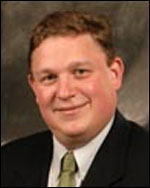Busy is the Enemy of Strategic
Duration: 1 hour
Facilitator: Dr. Adam Peck
Price: $50.00
Overview:
There is a famous scene from “I Love Lucy” where Lucy and Ethel take a job in a chocolate factory. Their job is to take the chocolate as it rolls off the assembly line, wrap it up and put it back on the conveyer belt. They start in control, but as the assembly line speeds up, they grow increasingly desperate. Without sufficient time to wrap the chocolate, they begin to pop it in to their mouths, fill their hats and even hide it in their clothing. Clearly, this isn’t how they intended to do their job, but with everything coming at them fast and furious, they don’t have time to come up with a better plan. Student affairs professionals often feel this way. Shrinking budgets and decreased staff have come at a time of increased regulation and compliance. Add to that our tendency to try to do more with less and the result is that we fail to be strategic with our scarcest resource – our time.
So how did we find ourselves in the predicament? There are likely both external and internal considerations. Starting with external considerations, clearly increased calls for “accountability” in higher education have resulted in increased compliance. Additionally, a growing narrative among our key stakeholders at both public and private universities is that higher education is ineffective, inefficient and, worst of all, resistant to change. Additionally, as Kruger and Peck (2017) write, “Rising costs in higher education have no doubt exacerbated and amplified the criticism student affairs is currently facing” (p. xxi). Meeting the demands of all of these various stakeholders takes a lot of our time, and potentially limits our ability to advance of most important goals.
We must also look at the internal considerations that contribute to the busyness that we experience today in students affairs. Nichols (1995) wrote about a concept called, “Administrative Lattice” which refers to our tendency to start doing things without stopping doing others. Like the lattice work pattern to which it refers, we keep overlaying new initiatives over old ones. Many can likely think of what this concept looks like on their own campuses. How frequently are we given new responsibilities without having previous ones taken away? As budgets decline, many follow the mantra of doing more with less. Schroeder (2013) suggest that instead, we do “less with less – but well” (p. 46). Doing so will require us to better prioritize and align what we do with the outcomes we hope to attain. After all, as the title of this session asserts, “Busy is the enemy of strategic.”
This session will provide strategies for analyzing how we spend our time and offer practical guidance for understanding how we can target our use of time toward our mission-critical outcomes.
Learning outcomes:
- Participants will understand the conditions in modern higher education that compel us to be better stewards of our time.
- Participants will be able to apply strategic mapping to connect their available time to their strategic priorities.
- Participants will be able to develop strategies for measuring personal productivity and create institutional benchmarks against which this can be compared.
Presenter biography:
 Dr. Adam Peck serves as Assistant Vice President and Dean of Student Affairs at Stephen F. Austin State University in Nacogdoches, Texas. Peck is also President and CEO of APEX Educational Programs, LLC, an educational consulting company that assists universities in engaging students and measuring the impact of that engagement. A former stand-up and improvisational comedian, Peck is a dynamic speaker who infuses his presentations with creativity and humor. He has presented at numerous national conferences, provided keynotes for a wide variety of groups and conducted more than 30 national webinars. Peck earned a Bachelor of Arts degree in Theatre from Lewis University, a Master of Arts in Communication Studies from Southern Illinois University at Edwardsville and a Doctor of Philosophy from The University of Texas at Austin.
Dr. Adam Peck serves as Assistant Vice President and Dean of Student Affairs at Stephen F. Austin State University in Nacogdoches, Texas. Peck is also President and CEO of APEX Educational Programs, LLC, an educational consulting company that assists universities in engaging students and measuring the impact of that engagement. A former stand-up and improvisational comedian, Peck is a dynamic speaker who infuses his presentations with creativity and humor. He has presented at numerous national conferences, provided keynotes for a wide variety of groups and conducted more than 30 national webinars. Peck earned a Bachelor of Arts degree in Theatre from Lewis University, a Master of Arts in Communication Studies from Southern Illinois University at Edwardsville and a Doctor of Philosophy from The University of Texas at Austin.
